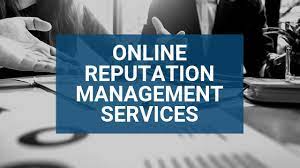In today’s digitally-driven world, how to do online reputation management has become a cornerstone for individuals, businesses, and brands alike. With the widespread use of social media, review sites, and search engines, a single negative review or viral post can impact a reputation significantly. Reputation management encompasses the strategies and tactics that individuals or organizations use to monitor, influence, and maintain their online and offline reputation. By understanding its importance and implementing best practices, people and organizations can foster trust, maintain positive public perception, and mitigate potential crises.
Why Reputation Management Matters
In an age where information is instant and public opinion is often formed in seconds, reputation can be a valuable asset or a dangerous liability. Here are some reasons why reputation management is essential:
- First Impressions Are Now Digital
Whether it’s a potential client, employer, or partner, people frequently turn to search engines or social media before making decisions about engaging with an individual or organization. A strong, positive online presence can enhance credibility, while negative search results can harm it. - Influences Customer Trust and Loyalty
Trust is the bedrock of customer relationships, and a solid reputation is crucial for building that trust. Studies indicate that customers are more likely to choose a brand with good reviews and a positive online image. Businesses with poor reputations may lose customers to competitors with better standing. - Attracts Talent and Investment
A positive reputation is attractive not only to clients but also to prospective employees and investors. Talented individuals seek organizations with good reputations as they reflect a healthy workplace culture and sound ethical practices. Similarly, investors are more likely to invest in companies with established credibility and minimal controversy. - Mitigates Crisis Impact
Organizations that actively manage their reputations are better positioned to handle crises when they arise. By having a clear reputation management strategy, a company can respond effectively to negative press, limiting potential damage to its image.
Key Strategies for Effective Reputation Management
To protect and improve their online image, organizations and individuals can leverage several reputation management strategies:
- Monitor Online Mentions
Tools like Google Alerts, Mention, and Hootsuite allow organizations to track what is being said about them online. Monitoring helps organizations stay informed about public perception and respond proactively to any emerging issues. - Encourage Positive Reviews and Feedback
Positive reviews act as digital endorsements. Encouraging satisfied customers to leave reviews on platforms like Google, Yelp, and social media channels can significantly boost online reputation. A good practice is to make it easy for customers to leave feedback by providing links or incentives. - Respond to Negative Reviews and Comments
Ignoring negative feedback can harm a brand’s image. Instead, addressing complaints professionally and constructively can help rebuild trust. A public apology, corrective action, or showing empathy can turn a negative situation into a reputation-building opportunity. - Create Quality Content to Rank Higher on Search Engines
Publishing valuable, SEO-optimized content can push negative search results lower on search engine rankings. By blogging, sharing industry insights, and engaging in public speaking, individuals and organizations can establish themselves as thought leaders and make positive content more visible. - Leverage Social Media Wisely
Social media platforms are invaluable for building and maintaining reputation, but they can also be volatile. Having a clear social media strategy, including crisis protocols, helps manage unexpected situations. It’s also crucial to remain professional, authentic, and transparent across all channels. - Engage in Corporate Social Responsibility (CSR)
Companies that give back to the community foster goodwill. CSR initiatives such as charity events, sponsorships, or volunteer programs enhance brand image and demonstrate a commitment to ethical practices. - Work with Reputation Management Professionals
For larger companies or high-profile individuals, hiring a reputation management professional or agency can be beneficial. These professionals bring expertise in managing digital presence, handling public relations, and responding to crises effectively.
Challenges in Reputation Management
The reputation management landscape is not without challenges. Some common hurdles include:
- Uncontrollable Factors
Negative press, malicious comments, or competitor actions can damage a reputation. The challenge lies in responding effectively, as not everything can be prevented. - Online Anonymity
Online platforms allow people to leave reviews and comments anonymously, which can encourage trolling or false accusations. This anonymity makes it challenging to hold individuals accountable and can lead to unjust criticism. - Rapid Information Spread
In the digital age, information spreads fast. A single tweet or post can go viral within minutes, reaching thousands of people. This speed makes it difficult to manage crises, requiring a quick and strategic response. - Balancing Transparency and Privacy
While transparency is valued, sharing too much information can backfire. The challenge for organizations is to maintain transparency without compromising privacy or inadvertently sharing sensitive details.
Measuring the Success of Reputation Management
Evaluating the effectiveness of reputation management efforts can be complex but necessary. Here are some indicators of success:
- Positive Feedback Trends: Increasing positive reviews and comments indicate that reputation management efforts are paying off.
- Improved Search Engine Rankings: If positive content ranks higher and negative results are pushed down, this is a good sign of success.
- Enhanced Social Media Engagement: Higher engagement rates and positive interactions on social media show that the organization has a strong and favorable public presence.
- Decreased Crisis Frequency: If an organization encounters fewer crises or handles them more smoothly, it demonstrates strong reputation management.
- Customer Retention and Acquisition: An increase in loyal customers or attracting new clients often reflects a favorable reputation.
Conclusion
Reputation management is a proactive approach to shaping public perception and safeguarding one’s image. In an environment where opinions are formed quickly, reputation management enables individuals and organizations to build trust, attract opportunities, and navigate crises with resilience. A solid reputation management strategy combines active monitoring, transparent communication, and strategic response. By prioritizing reputation, individuals and organizations can secure a favorable place in the public eye, ensuring their continued success and credibility in an increasingly connected world.
